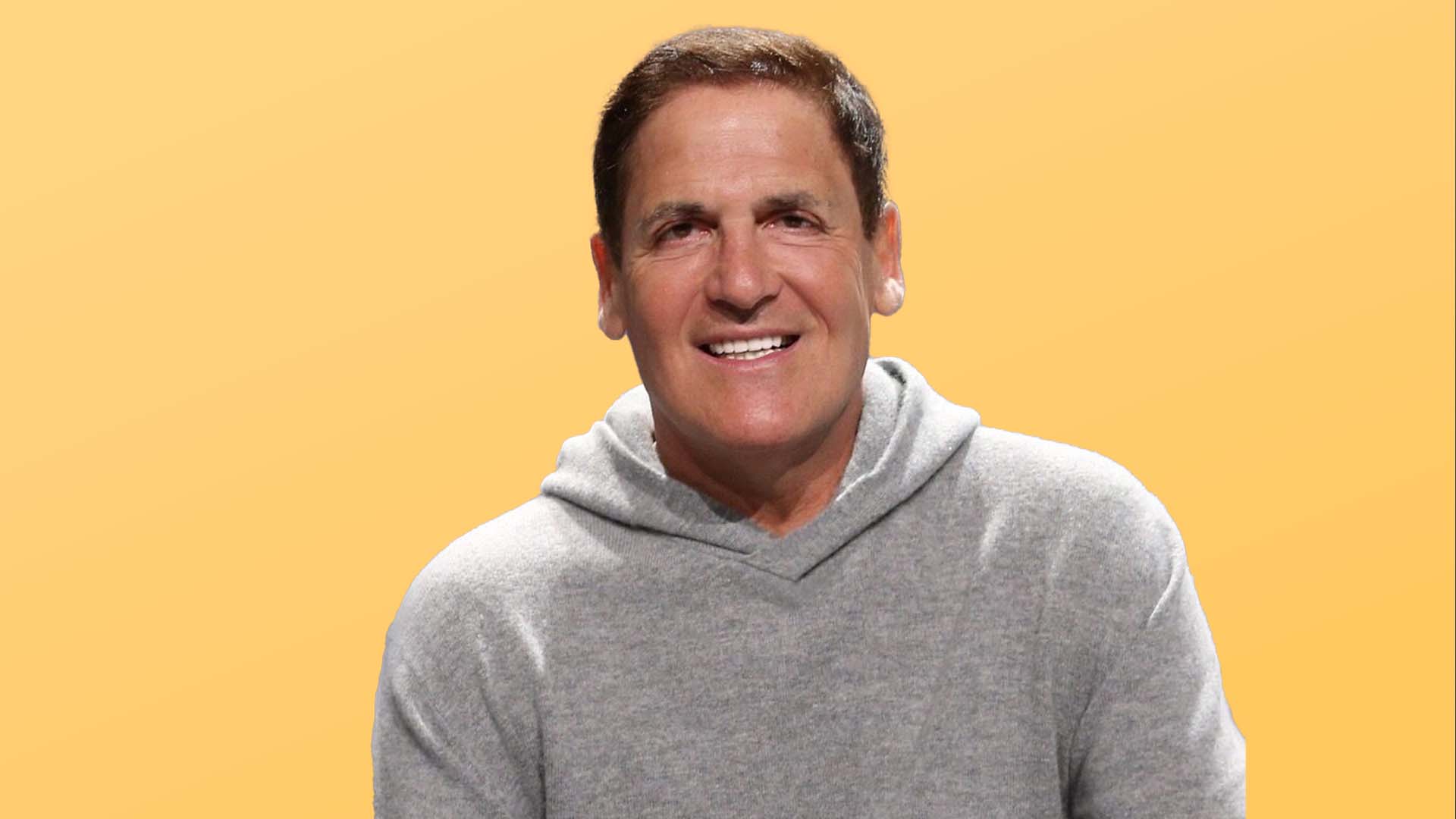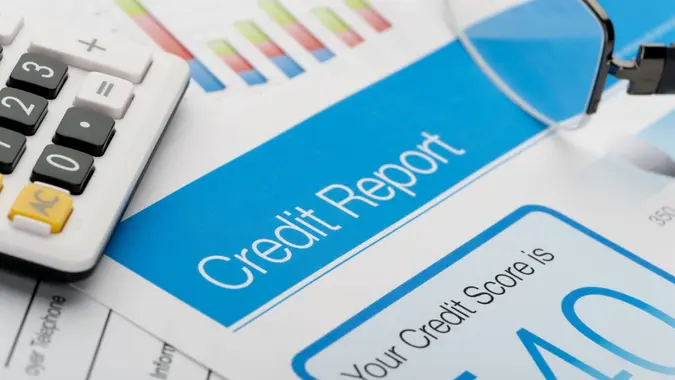2 Common Credit Score Myths That Can Tank Your Finances — And How To Fix Them

Commitment to Our Readers
GOBankingRates' editorial team is committed to bringing you unbiased reviews and information. We use data-driven methodologies to evaluate financial products and services - our reviews and ratings are not influenced by advertisers. You can read more about our editorial guidelines and our products and services review methodology.

20 Years
Helping You Live Richer

Reviewed
by Experts

Trusted by
Millions of Readers
Your credit score affects everything from your mortgage rate to whether you can rent the apartment you want. But despite how important it is, many people believe myths about credit that can actually hurt their finances.
Julien Saunders, co-creator of the award-winning blog rich & REGULAR and author of “Cashing Out,” has spent years helping people understand how credit really works. We caught up with Saunders as part of GOBankingRates’ Top 100 Money Experts series, and he said that when it comes to credit, the biggest problem isn’t that people don’t care about their credit scores — it’s that they’re following advice that makes things worse.
Myth 1: Carrying a Balance Helps Your Credit Score
This might be the most expensive myth in personal finance. Saunders said people think keeping a balance on their credit card proves they’re using credit responsibly.
“[The myth is] that carrying a balance somehow helps your score. It doesn’t, it just helps banks charge you more interest,” Saunders explained.
Here’s what actually happens when you carry a balance: You pay interest on money you could have paid off, and your credit utilization ratio goes up. That utilization ratio — how much of your available revolving credit you’re using — accounts for about 30% of a typical credit score.
The fix is simple: Pay off your balance every month. Your credit card company will still report that you’re using the card, which is what builds your credit history. But you won’t pay interest, and you’ll keep your utilization low.
If you can’t pay the full balance, try to keep it under 30% of your credit limit. Even better: aim for under 10% when possible.
Myth 2: Credit Scores Reflect How Rich You Are
People often assume a high credit score means someone makes a lot of money. Saunders said this misconception leads people to prioritize the wrong things.
“Another big myth is that credit scores reflect wealth, when they really reflect consistency. Good credit is about habits, not income,” he said.
You can have a six-figure salary and a terrible credit score if you routinely miss payments or max out cards. Meanwhile, someone earning $40,000 a year can have an 800-plus score by paying on time and keeping balances low.
Saunders was clear that credit scores measure reliability, not wealth. “It’s built by being predictable — paying bills on time, keeping balances low and resisting the urge to open every card offer that lands in your inbox.”
How Often Should You Actually Check Your Credit?
Saunders recommended checking your credit report at least twice a year, and more often if you’re actively working to improve your score.
“Think of it like checking your smoke alarm — it’s not exciting, but it could save you a lot of damage,” he said.
When you check, look for errors, accounts you didn’t open and anything that seems wrong. Credit-reporting errors happen, and they can hurt your score for months if you don’t catch them.
If you find something that doesn’t make sense, dispute it with the reporting bureau. “This is your name on the line, and one wrong detail can drag your score down for months,” Saunders explained.
You can get free credit reports from all three major bureaus once a year at AnnualCreditReport.com. Many card issuers and banks also provide free credit monitoring and alerts.
The Three Habits That Actually Build Credit
Saunders breaks down credit building into three simple habits that work over time:
- Set up autopay. Late payments hurt your score more than almost anything else. Payment history makes up 35% of your credit score, so automating payments removes human error from the equation.
- Keep your balances low. This goes back to that utilization ratio. Even if you pay off your card every month, try to keep your balance low throughout the month since some cards report your balance on any given day, not only on your statement date.
- Don’t cancel your oldest credit card. Length of credit history matters. Unless a card has a high annual fee you can’t justify, keep that old card open. Put a small recurring charge on it and use autopay to keep it active.
Why Recovery Matters More Than Perfection
Life happens. People lose jobs, face medical bills or deal with emergencies that affect their credit. Saunders said the key isn’t avoiding problems — it’s how you handle them.
“The best credit scores come from people who treat their credit like a long-term relationship. Life is going to happen, but what matters is how you show up after the setback,” he said.
If you miss payments or your score drops, don’t panic. Get back to good habits as quickly as possible. “Your ability to recover and stay steady afterward is what lenders remember most.”
This means if you have to choose between paying a credit card or paying rent, pay rent. If you’re struggling, call your credit card company before you miss payments. Many offer hardship programs that can help without destroying your credit.
The Bottom Line
Building good credit isn’t about gaming the system or carrying debt. It’s about consistent habits that prove you’re reliable with money. Pay bills on time, keep balances low and don’t open credit accounts you don’t need. Check your credit report regularly to catch errors, and if something goes wrong, focus on getting back on track.
Your credit score is not a measure of how much money you have; it’s a measure of how consistently you manage the money you do have.
This article is part of GOBankingRates’ Top 100 Money Experts series, where we spotlight expert answers to the biggest financial questions Americans are asking. Have a question of your own? Share it on our hub — and you’ll be entered for a chance to win $500.
 Written by
Written by  Edited by
Edited by  Money Expert
Money Expert 









































































































